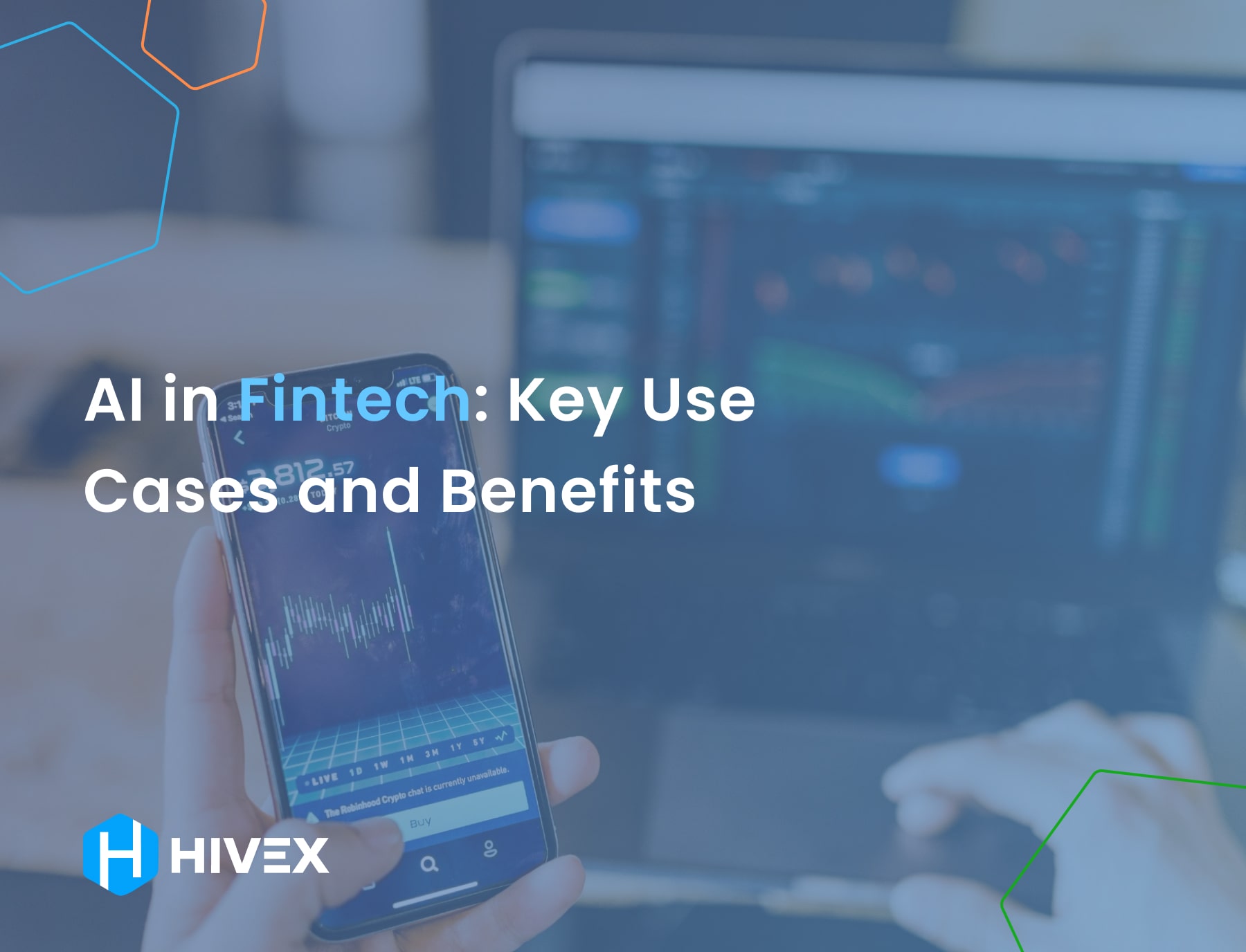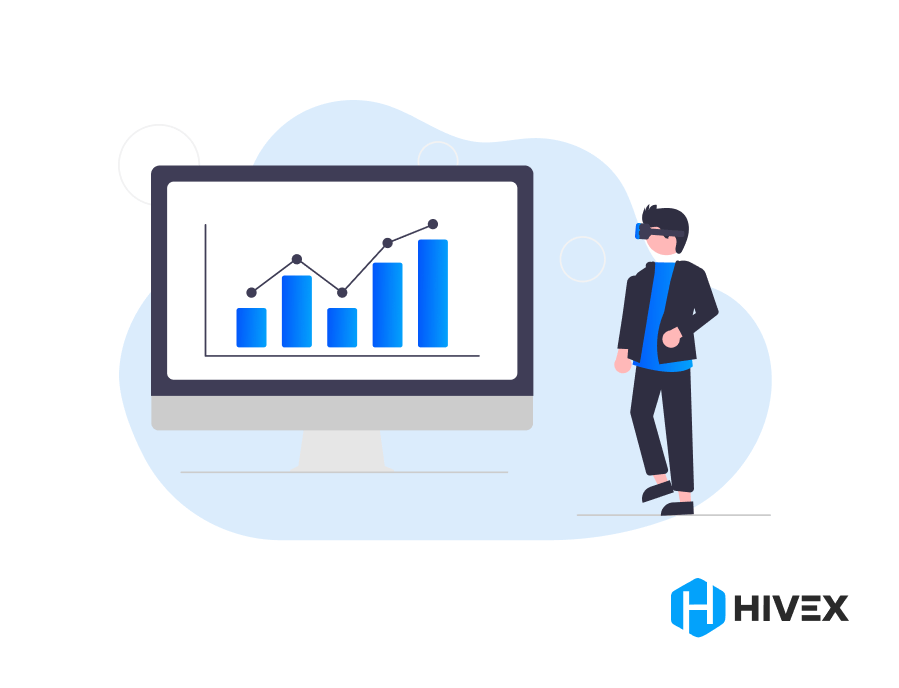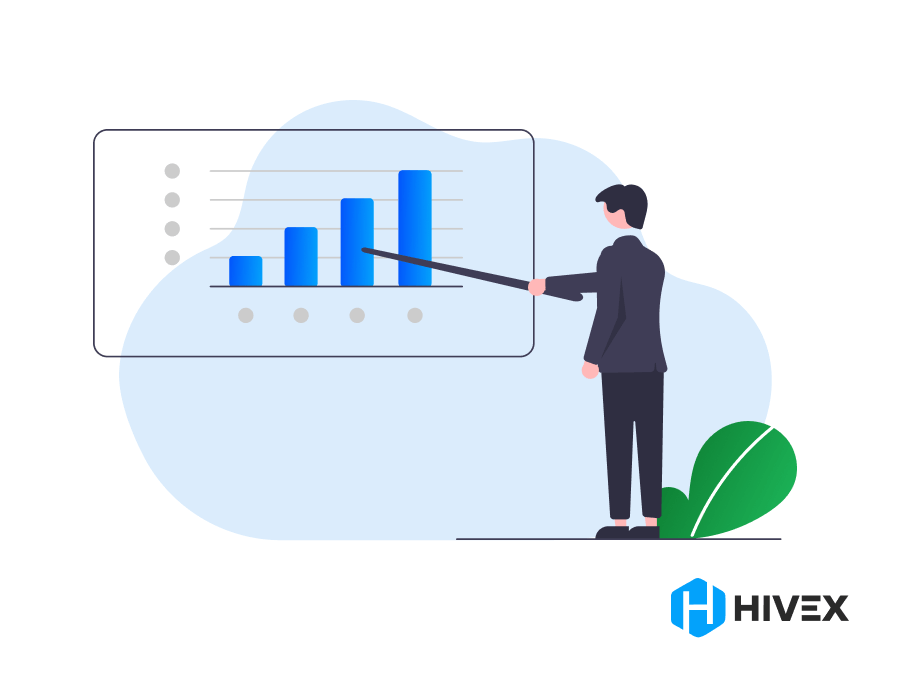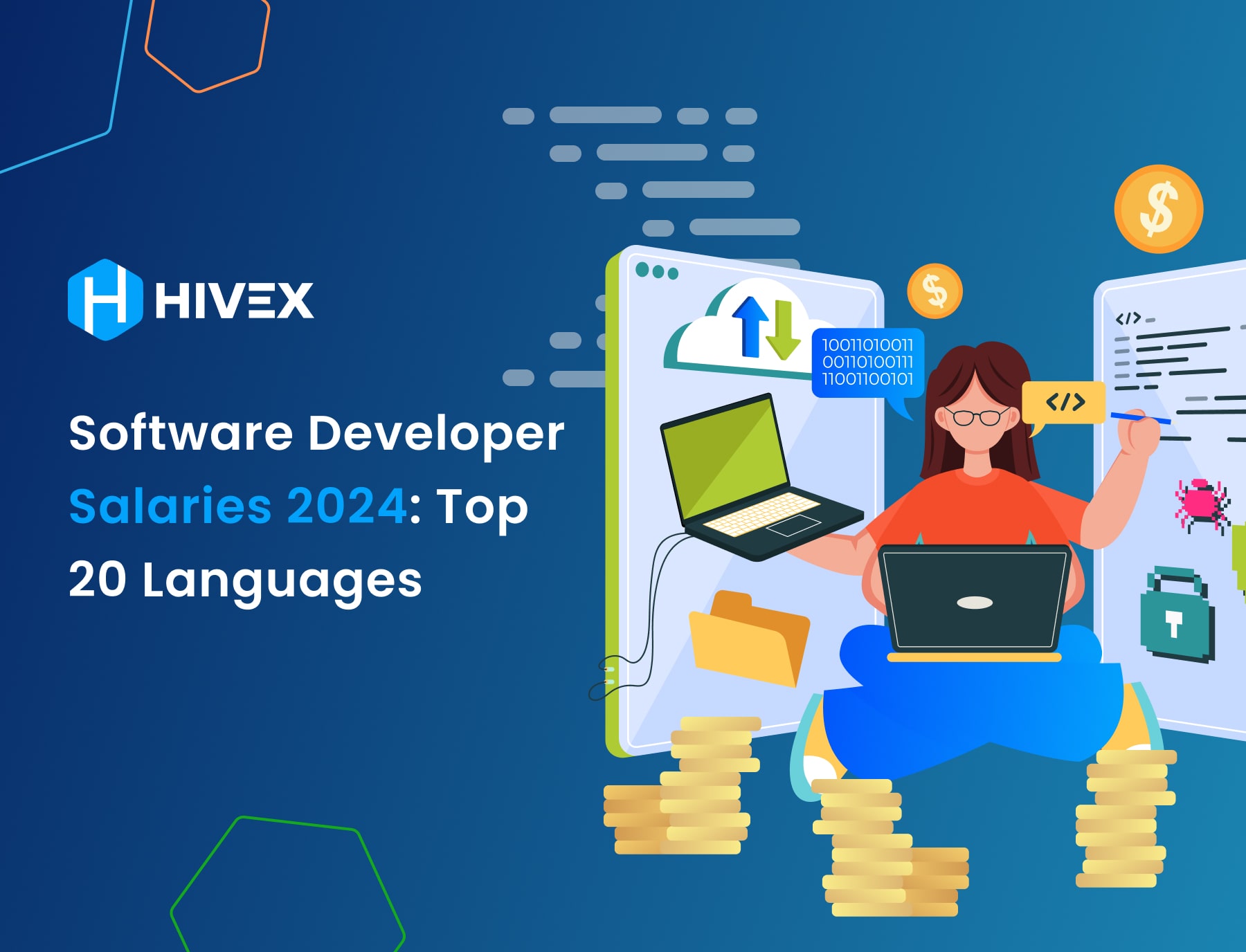AI in Fintech: Key Use Cases and Benefits

Artificial intelligence has rapidly gained prominence in Fintech. With its ability to automate processes, analyze vast amounts of data, and provide personalized solutions, AI offers a wide range of use cases that have revolutionized the financial industry. In this article, we will explore the rise of AI in Fintech and its use cases and potential.
“AI’s integration into our investment strategies is way beyond optional, it is now an imperative for staying ahead!” – Andy Fitze, Co-Founder of SwissCognitive.
The Rise of AI in Financial Technology

The rise of AI in Fintech has revolutionized the finance industry, bringing forth a wave of innovation and efficiency. With the integration of artificial intelligence, companies, and consumers are experiencing a transformation in financial services delivery and management.
Machine learning algorithms have become the backbone of Fintech companies, empowering them to sift through massive datasets with lightning speed and precision, making data analysis a critical component of their operations.
The use of AI has proven essential in comprehending and utilizing financial data. By applying sophisticated algorithms, these companies can analyze financial data with unprecedented depth and insight.
This enables them to identify market trends, adapting swiftly to the changing dynamics of the finance sector. As a result, both investors and companies benefit from data-driven strategies that are both innovative and effective.
AI-powered tools have not only improved customer service but have also enhanced fraud detection mechanisms in the finance industry. By implementing AI to scrutinize patterns and anomalies in real-time, AI algorithms can detect suspicious activities and prevent fraudulent transactions before they occur.
This proactive approach has significantly reduced financial risks for both businesses and consumers, fostering a more secure and trustworthy financial ecosystem.
In addition, advancements in artificial intelligence have led to improvements in payment processing systems. These systems are now more efficient, secure, and user-friendly, enhancing the overall customer experience in financial transactions.
This development marks a significant step forward in digital finance, which is all about convenience and security.
Transforming Customer Experience with AI

One of the key areas where AI is making a significant impact in the Fintech industry is customer experience. By using AI-powered algorithms, companies can offer personalized financial advice and recommendations based on individual customer preferences and financial goals.
For instance, robo-advisors use AI algorithms to analyze customer data and provide automated investment advice, helping individuals make smarter investment decisions. Also, AI-powered virtual assistants can support customers in managing their finances, tracking expenses, and offering budgeting advice.
AI streamlines the loan approval process by automating credit scoring and risk assessment. As we know, traditional methods of assessing creditworthiness are time-consuming and prone to human error. AI algorithms can quickly analyze an individual’s credit history, income sources, and other relevant data points to provide a more accurate and efficient assessment of their credit risk.
This not only speeds up the loan approval process but also increases the accuracy of credit decisions, leading to better outcomes for both lenders and borrowers.
Enhancing Fraud Detection and Security

Fraud detection and security are critical concerns in the financial industry. AI significantly enhances fraud detection systems’ effectiveness by analyzing vast amounts of transactional data in real time and identifying patterns and anomalies that may indicate fraudulent activities.
For example, AI algorithms detect unusual spending patterns or suspicious transactions and alert financial institutions and customers to potential fraud.
This proactive approach to fraud detection helps in preventing financial losses and protecting customer information from unauthorized access, thereby significantly reducing the incidence of financial fraud.
You may also like: How does AI detection work?
Evolution & Adaptation
Moreover, AI-powered fraud detection systems can adapt and evolve as they learn from new data and emerging fraud trends.
This continuous learning capability enables these systems to stay ahead of sophisticated fraud schemes and provide more accurate and timely alerts to financial institutions. In doing so, they play a pivotal role in fraud attempts identification and mitigation.
By leveraging machine learning and predictive analytics, organizations can improve their fraud detection capabilities, understand customer behavior to better detect anomalies, and stay one step ahead of cybercriminals.
Using Biometrics
The integration of biometric authentication methods, such as fingerprint or facial recognition, can add an enhanced security layer to financial transactions.
Biometric data is unique to each individual, making it extremely difficult for fraudsters to replicate or steal. This implementation is a significant stride in efforts to prevent fraud.
By combining AI-driven fraud detection with biometric authentication, financial institutions can create a robust security framework that not only detects fraud in real-time but also ensures secure and seamless customer experiences.
This integrated approach is vital in safeguarding against the ever-increasing sophistication of financial frauds and protecting both institutions and their customers.
Read also: How AI Engineers Work: Key Duties and Skills
AI-Powered Trading Strategies

AI has transformed trading strategies in the Fintech industry by providing sophisticated algorithms that can analyze market data and make trading decisions in real-time.
For example, AI-powered trading bots can analyze market trends, news, and social media sentiment to execute trades automatically. These bots can monitor multiple financial markets simultaneously and react quickly to changing market conditions, potentially generating higher profits for investors.
Additionally, AI algorithms can use historical data to backtest and optimize trading strategies, further improving their performance.
AI-powered trading strategies can adapt to market conditions in ways human traders can’t.
These algorithms can process vast amounts of data at speeds much faster than any human, allowing them to identify and act on opportunities within milliseconds. This speed and efficiency give AI-powered trading bots a significant edge in today’s fast-paced financial markets, where split-second decisions can make a difference in profitability.
Furthermore, AI algorithms can also incorporate machine learning techniques to continuously improve trading strategies over time.
By analyzing past trade outcomes and adjusting their algorithms accordingly, these AI systems can learn from experience and become more effective at predicting market movements.
This adaptive learning capability sets AI-powered trading strategies apart from traditional trading methods, offering investors a dynamic and data-driven approach to navigating the financial world.
Improving Credit Scoring and Risk Assessment

Credit scoring and risk assessment are vital aspects of the financial market, and artificial intelligence has significantly improved their accuracy and efficiency.
Traditionally, credit scores were based on limited data, such as payment history and credit utilization.
However, AI algorithms can now consider a wide range of data points, including social media profiles, online shopping habits, and even behavioral patterns, to assess creditworthiness.
This holistic approach provides a more comprehensive view of an individual’s creditworthiness, enabling institutions to make more informed lending decisions in their financial operations.
Improved Risk Management
The integration of machine learning models into credit scoring has revolutionized the industry by enabling real-time risk assessment.
By continuously analyzing data and identifying patterns, machine learning algorithms can adapt to changing economic conditions and consumer behaviors, allowing for more dynamic and responsive risk evaluation.
This real-time risk assessment not only benefits financial institutions by reducing potential losses from defaulters but also helps consumers by providing them with more personalized and fair credit offers.
The Use of Alternative Data Sources
Another significant advancement in credit scoring and risk assessment is the use of alternative data sources.
In addition to traditional financial data, such as credit card transactions and loan history, lenders now have access to unconventional sources like rental payment history, utility bill payments, and even social media activity.
By incorporating these alternative data points into their risk assessment models, financial institutions can better serve underbanked populations and individuals with limited credit histories, promoting financial inclusion and expanding access to credit opportunities.
Streamlining Compliance and Regulatory Processes

Compliance and regulatory processes in the financial industry are often complex and time-consuming. Here, AI models can significantly help by automating document review, monitoring transactions for regulatory compliance, and identifying potential risks.
For instance, AI algorithms can analyze contracts and legal documents to ensure compliance with regulations, saving time and reducing error risk. Additionally, AI-powered solutions can monitor financial transactions, identify suspicious activities, and generate reports to meet regulatory requirements.
Adaptability to Changes
One key benefit of using AI in compliance and regulatory processes is the ability to adapt to changing regulations quickly. As laws and regulations evolve, AI systems can be updated to incorporate these changes and ensure ongoing compliance.
This agility is crucial in the finance industry, where regulatory requirements can shift frequently. By leveraging AI, financial institutions can stay ahead of regulatory changes and avoid costly non-compliance penalties.
Real-Time Insights
AI technologies enhance compliance audit efficiency by providing real-time insights into potential risks and areas of non-compliance. They enable compliance officers to proactively address issues before they escalate, improving overall risk management practices within the organization.
By automating routine tasks and flagging potential compliance issues, AI empowers teams to focus their efforts on strategic initiatives and high-priority areas, ultimately enhancing the organization’s overall regulatory compliance posture.
Personalizing Advice with AI for Financial Companies
AI enables Fintech companies to provide personalized investment advice catered to individual customer needs.
By analyzing customer data, including income, expenses, and financial goals, AI algorithms can offer tailored recommendations for saving, investing, and budgeting, enhancing personalized services.
For example, AI-powered financial planning tools can help users create customized financial plans based on their specific circumstances and goals. These tools can also provide suggestions for optimizing savings, reducing debt, and planning for retirement, often grounded in data-driven decisions.
Furthermore, AI in the financial sector is revolutionizing the way customers interact with their money.
Machine learning algorithms can now offer real-time insights into spending patterns, investment opportunities, and risks.
This level of personalized financial guidance goes beyond traditional banking services, empowering individuals to make informed decisions about their financial future with confidence, and enhancing their financial literacy.
As AI continues to evolve, the integration of natural language processing (NLP) technology allows for more seamless interactions between customers and AI-powered financial tools.
This means that users can engage in conversations with virtual financial advisors, asking questions and receiving instant responses tailored to their unique financial situation.
The combination of AI, data analytics, and NLP is shaping a new era of data-driven decision-making.
Automating Customer Support in Fintech

AI-powered chatbots are revolutionizing customer support in the Fintech industry. These chatbots can answer customer queries, provide account information, and assist with basic financial tasks, such as transferring funds or making payments.
By automating routine tasks, AI-powered chatbots free up human agents to focus on more complex issues, improving response times and enhancing overall customer satisfaction.
Insights From Customer Interactions
AI algorithms can continuously learn from customer interactions, enabling chatbots to provide more accurate and personalized responses over time, essentially acting as virtual assistants.
24/7 Availability
Another key advantage of using AI-powered chatbots in customer support is their ability to handle large customer service teams’ volume of inquiries simultaneously, 24/7. This round-the-clock availability ensures that customers can get assistance whenever they need it, without being constrained by traditional business hours.
Multilingual Support
Additionally, chatbots can be programmed to provide multilingual support, catering to a diverse customer base and breaking down language barriers that may exist in traditional customer service settings. This level of accessibility and inclusivity helps Fintech companies reach a wider audience and provide a seamless customer experience across different regions and demographics.
Integration with Other Tools
The integration of data analysis tools with these chatbots allows for enhanced portfolio management, as they can track customer preferences and behaviors, providing valuable insights for both customers and businesses.
However, we can’t deny that despite the high level of automation, human intervention remains a critical component, particularly for handling complex queries and ensuring customer trust and satisfaction in the Fintech sector.
You may also like: Decentralized Finance Developers: A Look At Their Work
Leveraging AI for Smart Investment Decisions

Investment decisions can be challenging, especially for novice investors.
AI algorithms can help individuals make smarter choices by analyzing market data, historical trends, and risk factors.
Process Automation & Financial Insights
Robo-advisors use AI algorithms to create optimized investment portfolios based on individual risk tolerance and financial goals.
These robo-advisors continuously monitor market conditions and automatically rebalance portfolios to maintain the desired asset allocation.
This form of process automation ensures that the investment process is efficient and responsive to market changes.
By leveraging AI for investment decisions, individuals can benefit from professional advice and improve their chances of achieving their financial objectives.
Furthermore, AI-powered investment tools can provide personalized insights and recommendations based on an individual’s financial situation and investment preferences.
They can analyze vast amounts of data in real-time to identify potential investment opportunities and risks, helping investors make informed decisions.
Cost Savings and Advanced Market Predictions
AI can help investors navigate complex financial markets by providing them with up-to-date information and analysis, enabling them to predict market trends and stay ahead of market developments.
This capability not only aids in risk management but also contributes to cost savings by avoiding unwise investments.
As AI technology advances, we can expect to see even more sophisticated investment solutions that leverage machine learning and predictive analytics to predict future financial behavior.
Such advancements could lead to substantial cost savings for investors by optimizing their investment strategies and avoiding potential losses.
The Future of AI Integration in the Financial Industry
AI integration in the Fintech industry is still in its early stages, and there is tremendous potential for further innovation.
As technology advances, AI algorithms will become even more sophisticated, enabling Fintech companies to offer more advanced services.
Predictive analytics and machine learning algorithms can be used to forecast market trends, identify investment opportunities, and manage risks more effectively.
Additionally, AI-powered voice assistants may become more prevalent, enabling customers to interact with financial services using natural language commands.
Developers and The Financial Sector
As the demand for AI in Fintech continues to grow, Fintech developers play a crucial role in driving innovation and developing advanced AI solutions.
By collaborating with financial institutions and industry experts, Fintech developers can identify specific pain points and design AI-powered solutions that address these challenges.
Moreover, Fintech developers can constantly refine and improve AI algorithms, ensuring they provide accurate results and meet regulatory requirements.
With their expertise in technology and the financial industry, these professionals are well-positioned to shape the future of AI integration in Fintech.
The Bottom Line
The use cases of AI in Fintech are diverse and offer significant benefits to both financial institutions and consumers.
From transforming customer experience and enhancing fraud detection to streamlining compliance processes and personalizing financial advice, AI has revolutionized the way the financial industry operates.
As this technology continues to advance, the future of AI integration in Fintech holds exciting possibilities, paving the way for smarter investment decisions and improved financial services.
With Fintech developers at the forefront, the path to a more intelligent and efficient financial future is within reach.
Related reading: How to Hire AI Developers


